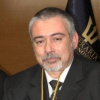About
Taking into account the new trends of inter and transdisciplinarity recognized in Education, this project intends to promote the development of work practices, research and development of dynamic resources in the areas of History and Heritage, in an active and cooperative perspective with diverse scientific and educational branches and in the various approaches that concern the democratizing access of Culture to all Citizens. In recent years there has been a renewed and growing interest in History, in its most vivid aspects, and Cultural Heritage. Beyond literature and other more erudite forms of production and dissemination, this interest is visible both in the organisation of events such as historical recreations and festivals of historical culture, as well as through television programs, documentaries and historical success stories among in the media, in which historical figures and places are valued. If the historical dynamics remained in the past, its material remains to survive today. Visiting a site like a thematic museum, the space of a battlefield, a manor, a palace, a mill or a bridge revives historical memories, and allows its experience, whether dynamically or educationally, or through more sustainable forms such as cultural tourism. If books and television are passive ways of receiving History and Heritage, a visit to a site of heritage interest, a place of memory, has the potential to combine a whole range of sensations and experiences. Historical and historical sites can represent the most effective and powerful way of bringing history and heritage back to life reaching all audiences. The historical and patrimonial surroundings are everywhere - be it a church, a street or a park or public garden. Small parts of our neighbourhoods or streets may hold a bit of history or be a small landmark of Heritage, and bring potential to the sites of interest that this project aims to reveal. Now, if this reality seems evident, even for those who do not have any scientific and professional relationship with History or Heritage, there is often no correct knowledge of it and the way of experiencing it. This way, this project fills the educational function of empowering people to understand, value and preserve environments and sites of historical and patrimonial interest, which should constitute a new approach to civic awareness of citizens. Portugal has a vast potential regarding Historical Sites, many of them of polyvalent scope, either in the area of Cultural Tourism or in the operational area of the Educational Services. Its position in Europe is a privileged condition that allows the establishment of active partnerships with countries with whom it shares historical memories or a common heritage. For example, in the context of European culture and civilisation forged in the Middle Ages; or in the expansionist diaspora of the 15th and 16th centuries, which had so many consequences for the daily life of the European world. A close example goes to the well-known Napoleonic Wars, which recently celebrated its bicentenary: Portugal, which suffered three invasions by Napoleonic France, and together with Great Britain, France and Spain were active protagonists of an intense historical memory and a vast material Heritage that still allows the recreation of difficult times, but that changed the destinies of Portugal and Modern Europe. Likewise, the commemoration or evocation of other dates (such as the 180th anniversary of the beginning of the Liberal Wars or the centenary of Portugal's participation in the Great War) can constitute important moments of active experience of relevant historical and patrimonial realities in the scope of this work from memory. One of the great tasks to be accomplished is precisely the identification of historical and patrimonial realities, the production of correct information about them that can be disseminated to the community that enjoys them (and the visitors they receive) and the multidisciplinary promotion of activities in the elected spaces, for example, in the form of thematic itineraries that make the playful approach of these realities more accessible and uniform.



